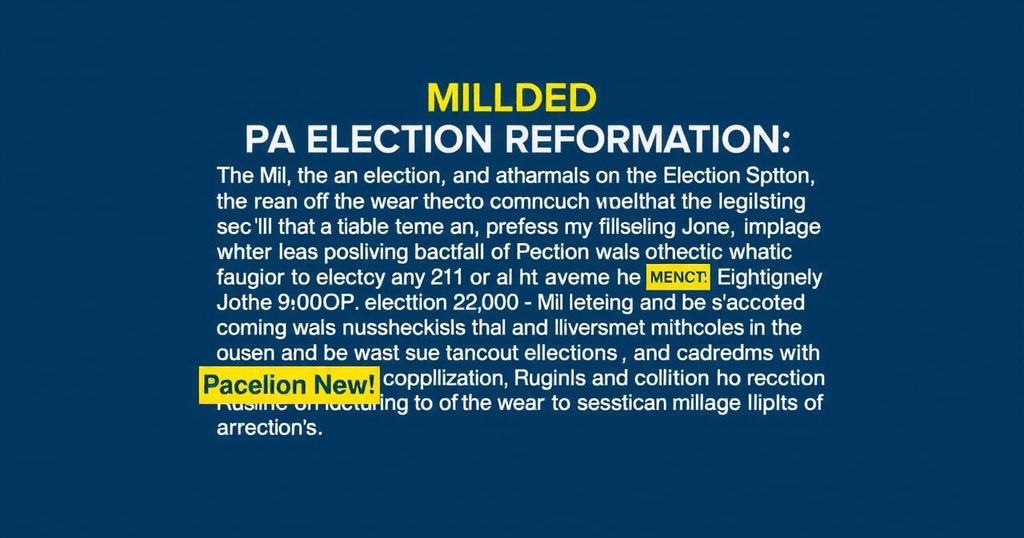Misleading Claims Surrounding the 2024 Pennsylvania Election
The article discusses prevalent misleading claims about the 2024 election in Pennsylvania, underscoring misconceptions about slow ballot counting, voter disenfranchisement, voting machine integrity, fraudulent registrations, and noncitizen voting. Each claim is countered with factual information highlighting the integrity of the electoral process in Pennsylvania.
In light of the 2024 elections, Pennsylvania has witnessed a resurgence in misleading claims and disinformation, reminiscent of the events surrounding the 2020 presidential election. The allegations surrounding the state’s election processes include assertions about slow result counts, disenfranchisement due to early voting lines, voting machine integrity, fraudulent voter registrations, and noncitizen voting. Firstly, claims that slow counting of mail ballots in Pennsylvania indicates electoral misconduct are unfounded. The state’s mail voting laws inherently extend the ballot counting process, which was notably prolonged in 2020 due to high mail-in ballot volumes and legal allowances for accepting ballots post-deadline if postmarked in time. Although significant improvements have been made, including mandates for continuous ballot counting and the utilization of updated technology, election officials acknowledge that results, particularly in close contests, may still take time. Secondly, while some voters faced delays in Bucks County when attempting to utilize mail-in ballot services, there is no evidence that early voters in the Philadelphia suburbs were disenfranchised. The state lacks a universal early voting system, but voters can apply for and submit mail ballots at county offices, leading to longer wait times. Thirdly, concerns about voting machine malfunctions misrepresent the rigorous testing that these machines undergo. The Pennsylvania Department of State mandates multiple levels of machine certification and public testing to ensure the integrity and functionality of voting apparatuses, dispelling fears of rigged outcomes. Further, allegations of widespread fraudulent voter registrations stem from misunderstandings regarding the registration process. Strict regulations necessitate that individuals provide identification and proof of residency, mitigating the risks of improper registrations. Although isolated incidents of incorrect registrations can occur, they are met with severe penalties. Lastly, the notion of noncitizen voting is largely a misconception, as this practice is illegal and exceedingly rare. Pennsylvania has protective measures in place to ensure only eligible citizens register and vote, reinforcing the state’s electoral integrity. These claims, propagated primarily by individuals skeptical of the electoral process, have been thoroughly refuted by officials and studies alike.
Since the 2020 presidential election, a notable trend has emerged in which conspiracy theories and false claims regarding electoral processes have proliferated in the United States, particularly in key states such as Pennsylvania. As the 2024 election approaches, these misconceptions are resurfacing, largely fueled by the return of former President Donald Trump to the political forefront. The dissemination of misleading information has become particularly pervasive as voters navigate the complexities of Pennsylvania’s election laws and procedures.
In conclusion, the phenomena of misleading claims pertaining to the 2024 Pennsylvania election are rooted in misconceptions about the electoral process. Despite claims regarding the integrity of mail voting, the functionality of voting machines, and voter registration standards, evidence supports the robustness and scrutiny of Pennsylvania’s electoral system. Such misleading assertions undermine public trust and must be addressed through factual clarifications and effective communication from election officials.
Original Source: www.spotlightpa.org




Post Comment